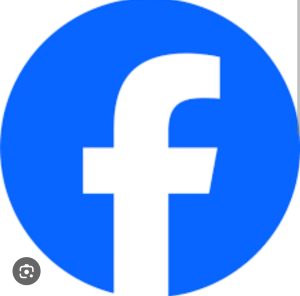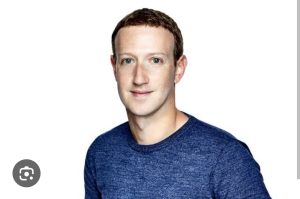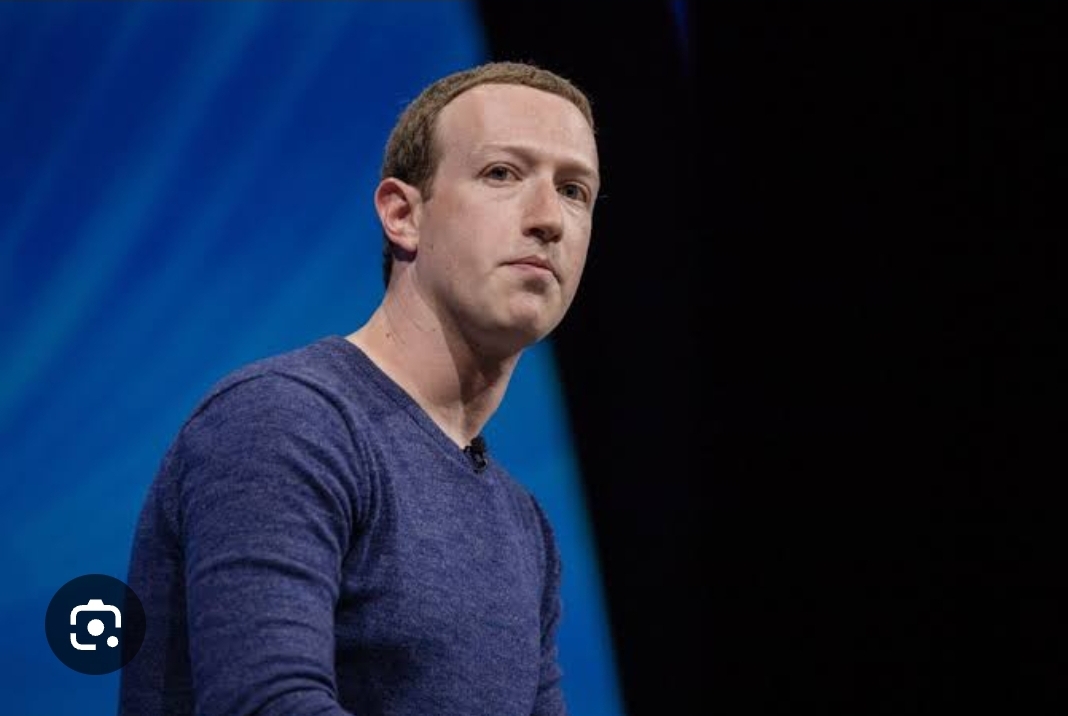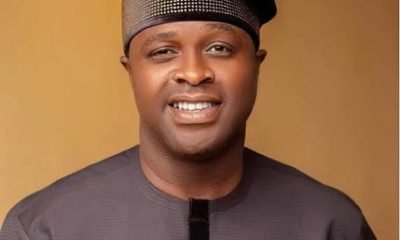Biography
Mark Zuckerberg’s Biography: An Innovator, Entrepreneur, His Legacy, Birth of Facebook, Acquisition of Both Instagram & WhatsApp And His Estimated NetWorth
Mark Zuckerberg: The Visionary Behind Facebook and the Digital Revolution
Mark Elliot Zuckerberg, born on May 14, 1984, in White Plains, New York, is one of the most influential figures of the 21st century. Known globally for his role as the co-founder and CEO of Facebook, now Meta Platforms Inc., Zuckerberg’s work has fundamentally transformed the way people communicate, share information, and connect with each other online. From humble beginnings to leading a multibillion-dollar company, his life story is a testament to innovation, vision, and perseverance. This biography delves deep into the various aspects of Mark Zuckerberg’s life, including his early years, education, career, leadership at Facebook, controversies, personal life, and his impact on the world of technology.
Early Life and Family Background
Mark Zuckerberg was born into a middle-class Jewish family. His father, Edward Zuckerberg, was a dentist, and his mother, Karen Zuckerberg, was a psychiatrist. The family lived in the suburban town of Dobbs Ferry, located just north of New York City. It was within this environment that Zuckerberg was introduced to the world of technology at an early age. Growing up with three sisters which are Randi, Donna, and Arielle. Zuckerberg often displayed an insatiable curiosity about how things worked. He was not like other kids; his interest in computers and programming set him apart and unique.
By the age of 12, Zuckerberg had already created his first computer program, ZuckNet, which was a messaging system designed for his family’s dental office. This project was one of his first forays into coding and communication technology, a theme that would define his future career. His interest in computers and software development deepened during his teenage years, laying the foundation for his future success in the tech world.
Education and the Early Years of Innovation
Zuckerberg attended Ardsley High School, where he was an academic standout, excelling in math and science. However, his true passion lay in computers. Recognizing his potential, his parents transferred him to Phillips Exeter Academy, a prestigious boarding school in New Hampshire. At Exeter, Zuckerberg thrived not only academically but also as the captain of the fencing team. Despite his academic success, Zuckerberg was most passionate about technology and spent much of his time programming.
It was during his time at Phillips Exeter that Zuckerberg began developing his first significant software projects. One of these projects was Synapse Media Player, a music recommendation system that used machine learning algorithms to predict songs users might enjoy. The application was so sophisticated that it caught the attention of tech companies like Microsoft and AOL, both of which offered him job opportunities. However, Zuckerberg was not interested in taking a corporate job. Instead, he chose to continue his education and pursue his passion for programming.
In 2002, Zuckerberg enrolled at Harvard University, where he initially pursued a major in psychology before shifting to computer science. At Harvard, his skills as a programmer became even more apparent. Zuckerberg created a number of projects, including CourseMatch, a system that helped students choose their classes based on which courses their friends were taking. He also developed Facemash, a website that allowed Harvard students to rate each other’s attractiveness based on their photos. Although Facemash was shut down by Harvard due to privacy concerns, the project laid the groundwork for what would become Facebook.
The Origin and Birth of Facebook
In February 2004, Mark Zuckerberg, along with his roommates Eduardo Saverin, Dustin Moskovitz, Andrew McCollum, and Chris Hughes, launched TheFacebook. Initially, the platform was restricted to Harvard students and allowed them to create profiles, upload photos, and connect with their friends. The idea was simple yet revolutionary: to create an online space where students could interact and share their lives.
Within a few months, the popularity of TheFacebook spread to other Ivy League universities, and soon after, it expanded to colleges across the United States. Recognizing the potential of the platform, Zuckerberg dropped out of Harvard in his sophomore year to focus full-time on developing the platform. The name was eventually shortened to Facebook, and by the end of 2005, the site had become a dominant force on college campuses across the country.
In 2006, Facebook expanded to include high school students, and by 2007, it had become a global phenomenon. By this time, Zuckerberg had proven that his idea was not only viable but also scalable. The platform’s user base grew exponentially, and the company quickly became a leading player in the emerging world of social networking.

The Rise of Facebook and Zuckerberg’s Leadership
As the CEO of Facebook, Mark Zuckerberg played a central role in shaping the platform’s development. His leadership was characterized by his focus on user experience, engagement, and the long-term vision of building a global community. Under Zuckerberg’s leadership, Facebook introduced several groundbreaking features, such as the News Feed in 2006, which displayed updates from friends and family in a continuous stream. The Like button (2009) allowed users to interact with content in a new and meaningful way, and the launch of Messenger in 2011 made Facebook a central hub for digital communication.
The Acquisition of WhatsApp and Instagram by Facebook: Strategic Moves and Their Impact
Mark Zuckerberg’s leadership at Facebook has been defined not only by his ability to innovate but also by his strategic acquisitions. Two of the most significant and game-changing acquisitions in Facebook’s history were the purchases of Instagram and WhatsApp, both of which played a crucial role in Facebook’s expansion and dominance in the digital space. These acquisitions were instrumental in solidifying Facebook’s position as the world’s leading social media platform and expanding its reach into new markets.
The Acquisition of Instagram
Instagram was founded in 2010 by Kevin Systrom and Mike Krieger, who initially created the app as a photo-sharing platform. Instagram’s unique selling proposition was its focus on simplicity and visual appeal, with a seamless user interface for sharing photos and later, videos. The app quickly gained traction, attracting millions of users worldwide. By 2012, Instagram had already garnered over 30 million active users, making it one of the fastest-growing social networks at the time.
At this juncture, Facebook, under Mark Zuckerberg’s leadership, saw an opportunity to bring Instagram into the fold. Facebook, which had already established itself as a dominant social platform, was eager to tap into the growing demand for mobile-centric, photo-sharing experiences, especially among younger audiences. Instagram’s user base represented a demographic that Facebook was eager to capture youthful, mobile-first, and increasingly influential in terms of culture and consumer behavior.
In April 2012, Facebook announced the acquisition of Instagram for approximately $1 billion in cash and stock. This was a bold move by Zuckerberg, who was only 28 years old at the time. It was also one of the first major acquisitions Facebook had made since its launch. Zuckerberg saw the potential in Instagram to not only complement Facebook’s existing platform but also provide an entirely new avenue for growth.

Why Instagram Was a Smart Acquisition
- Mobile-First Strategy: At the time, Instagram was designed primarily for mobile devices, which positioned it perfectly to complement Facebook’s future mobile-first strategy. Facebook had been facing challenges in adapting its platform to mobile devices, and Instagram filled that gap by providing a seamless, mobile-friendly photo-sharing experience.
- A Youthful Audience: Instagram had a rapidly growing user base, especially among young people, a demographic that was starting to show signs of declining interest in Facebook. By acquiring Instagram, Zuckerberg ensured that Facebook could continue to appeal to this audience, which was vital for the long-term growth of the company.
- Diversification and Innovation: Instagram allowed Facebook to diversify its product offering. While Facebook was focused on general social networking, Instagram’s strength was in photo and visual content, which allowed Facebook to tap into the growing demand for visual storytelling. Additionally, Instagram was able to innovate with features like Stories and Instagram Direct, which were designed to enhance user engagement and compete with emerging platforms like Snapchat.
- Global Reach: Instagram’s user base was global, and its simplicity made it easy for users from different cultures and regions to adopt the platform. By acquiring Instagram, Facebook expanded its presence in countries where Facebook itself was struggling to gain traction, especially among younger users.
Instagram’s acquisition was a resounding success. Over the years, Instagram continued to grow exponentially, reaching over 3 billion monthly active users by 2020. The platform also introduced new revenue-generating features, such as Instagram Shopping and Instagram Ads, which bolstered Facebook’s ad revenue. Instagram’s growth and success contributed immensely to Facebook’s overall financial performance, making the $1 billion acquisition seem like a bargain in hindsight.
The Acquisition of WhatsApp
WhatsApp, founded in 2009 by Jan Koum and Brian Acton, was an instant messaging app designed to make text messaging simpler and more accessible, particularly in regions with high mobile phone usage but low access to traditional SMS services. WhatsApp’s primary feature was its ability to send text messages, voice messages, photos, and videos over the internet, which made it a cheaper alternative to SMS.
WhatsApp’s global reach grew rapidly, and by 2014, the app had over 600 million active users. This massive user base caught the attention of Facebook, which was looking for ways to dominate the global mobile communication space. Messaging platforms had become increasingly important, especially as social networks began shifting their focus to mobile-first, real-time communication. Mark Zuckerberg saw an opportunity in WhatsApp’s user base and its potential for further expansion, especially in markets like India, Africa, and parts of Latin America, where WhatsApp had already become a household name.
In February 2014, Facebook announced the acquisition of WhatsApp for a whopping $19 billion, making it one of the largest technology acquisitions in history. The deal consisted of $4 billion in cash, $12 billion in Facebook stock, and $3 billion in restricted stock units that would vest over time.

Why WhatsApp Was a Game-Changing Acquisition
- Massive Global Reach: WhatsApp’s user base was vast and included millions of people in emerging markets where Facebook was not yet as dominant. The acquisition allowed Facebook to tap into markets like India, which had a rapidly growing number of smartphone users but little access to SMS services. WhatsApp’s ability to cross language barriers and offer a simple, efficient messaging platform was a key reason why it became so widely adopted.
- Complementary to Facebook’s Ecosystem: WhatsApp provided Facebook with a new communication tool that complemented the social networking capabilities of Facebook and Instagram. Facebook had built its empire around content sharing and social interactions, and WhatsApp filled the void in mobile messaging, offering a more private and personal communication channel.
- Strengthening Facebook’s Mobile Strategy: Facebook recognized the increasing importance of mobile messaging, particularly in light of the rise of mobile-first platforms like Snapchat and WeChat. By acquiring WhatsApp, Facebook ensured that it had a stronghold in the mobile messaging space, providing users with a complete suite of communication tools, from social networking (Facebook) to photo sharing (Instagram) to messaging (WhatsApp).
- Revenue Potential: Although WhatsApp was initially ad-free, Zuckerberg and his team saw the potential for monetizing the app in the future. WhatsApp’s business features, such as WhatsApp Business and the ability for companies to interact with customers, provided new avenues for generating revenue. In addition, WhatsApp’s simplicity and wide adoption made it an attractive option for advertisers looking to connect with users on a more personal level.
WhatsApp has continued to grow since its acquisition, and as of 2021, the app had over 2 billion active users, making it one of the most popular messaging platforms in the world. In recent years, WhatsApp has added features like payments, business accounts, and voice and video calls, further expanding its functionality and reach. The acquisition of WhatsApp has proven to be one of Facebook’s most successful strategic moves.
The Strategic Vision Behind the Acquisitions
Both Instagram and WhatsApp were transformative acquisitions that played a pivotal role in Facebook’s growth and its domination of the social media and messaging industries. Zuckerberg’s vision for Facebook was always to create a connected, global community, and both of these acquisitions helped him achieve that goal.
- Instagram allowed Facebook to expand into visual content and connect with younger, more mobile-centric audiences.
- WhatsApp enabled Facebook to dominate mobile messaging and further its reach in emerging markets.
By acquiring these companies, Zuckerberg strengthened Facebook’s position as a leader in the digital communication space, offering a diverse range of platforms for users to connect, share, and communicate.
Controversies and Challenges
Despite his success, Zuckerberg’s leadership has not been without controversy. Throughout the years, Facebook has faced criticism over issues related to privacy, data security, and the spread of misinformation.
One of the most significant controversies occurred in 2018 with the Cambridge Analytica scandal. It was revealed that the political consulting firm Cambridge Analytical had accessed the personal data of millions of Facebook users without their consent. This incident raised serious questions about Facebook’s handling of user data and its responsibility to protect user privacy. Zuckerberg was called to testify before Congress, where he faced intense questioning from lawmakers about Facebook’s role in the scandal and the company’s overall data practices.
Another challenge Facebook faced was the spread of misinformation and fake news, particularly during elections and major political events. Critics argued that Facebook’s algorithms were amplifying divisive and false content, leading to social unrest and the erosion of trust in the media. In response, Zuckerberg has pledged to make changes to Facebook’s algorithms and introduce new tools to combat misinformation on the platform.
In addition to these controversies, Facebook has also faced antitrust investigations from regulatory bodies around the world. Concerns about Facebook’s monopolistic practices, particularly regarding its acquisitions of Instagram and WhatsApp, have led to scrutiny from the U.S. Federal Trade Commission and the European Union. Despite these challenges, Zuckerberg has remained steadfast in his commitment to Facebook’s mission of connecting the world.
Personal Life and Philanthropy
Outside of his work at Facebook, Mark Zuckerberg is known for his philanthropic efforts. In 2015, he and his wife, Priscilla Chan, who is a pediatrician, announced the creation of the Chan Zuckerberg Initiative (CZI). The initiative’s goal is to “advance human potential and promote equality.” Zuckerberg and Chan pledged to donate 99% of their Facebook shares over their lifetimes, a commitment that could amount to billions of dollars.
Zuckerberg and Chan have two daughters, Maxima (Max), born in 2015, and August, born in 2017. The couple is deeply committed to improving global education and healthcare through their charitable efforts. Zuckerberg’s involvement in CZI reflects his desire to use his wealth and influence to make a positive impact on society.

Net Worth and Legacy
As of 2024, Mark Zuckerberg’s net worth is estimated at over $110 billion, making him one of the wealthiest individuals in the world. His wealth primarily comes from his significant stake in Facebook (now Meta), but his investments in various other companies, including Oculus VR and WhatsApp, have also contributed to his financial success.
Zuckerberg’s legacy is complex. He has undeniably changed the world by creating Facebook, one of the most influential platforms in history. He has revolutionized how we communicate, share information, and interact online. However, he has also faced significant challenges, including criticism over Facebook’s handling of privacy issues, its role in spreading misinformation, and its impact on mental health.
Nonetheless, Zuckerberg’s ability to adapt and innovate has allowed him to continue leading Meta as the company looks to shape the future of the internet through its ambitious metaverse project. Whether or not Zuckerberg’s vision for the metaverse succeeds, his impact on the technology industry is undeniable, and his story will continue to shape the future of social media and digital connectivity.
Conclusion
Mark Zuckerberg’s journey from a Harvard dorm room to the helm of one of the most influential companies in the world is a testament to his vision, drive, and ability to navigate the complexities of the digital age. His contributions to the tech industry have transformed how we connect with one another, and his continued innovations will likely shape the future of the internet. Although his career has not been without its challenges, Zuckerberg’s legacy as a visionary and digital pioneer is secure.













